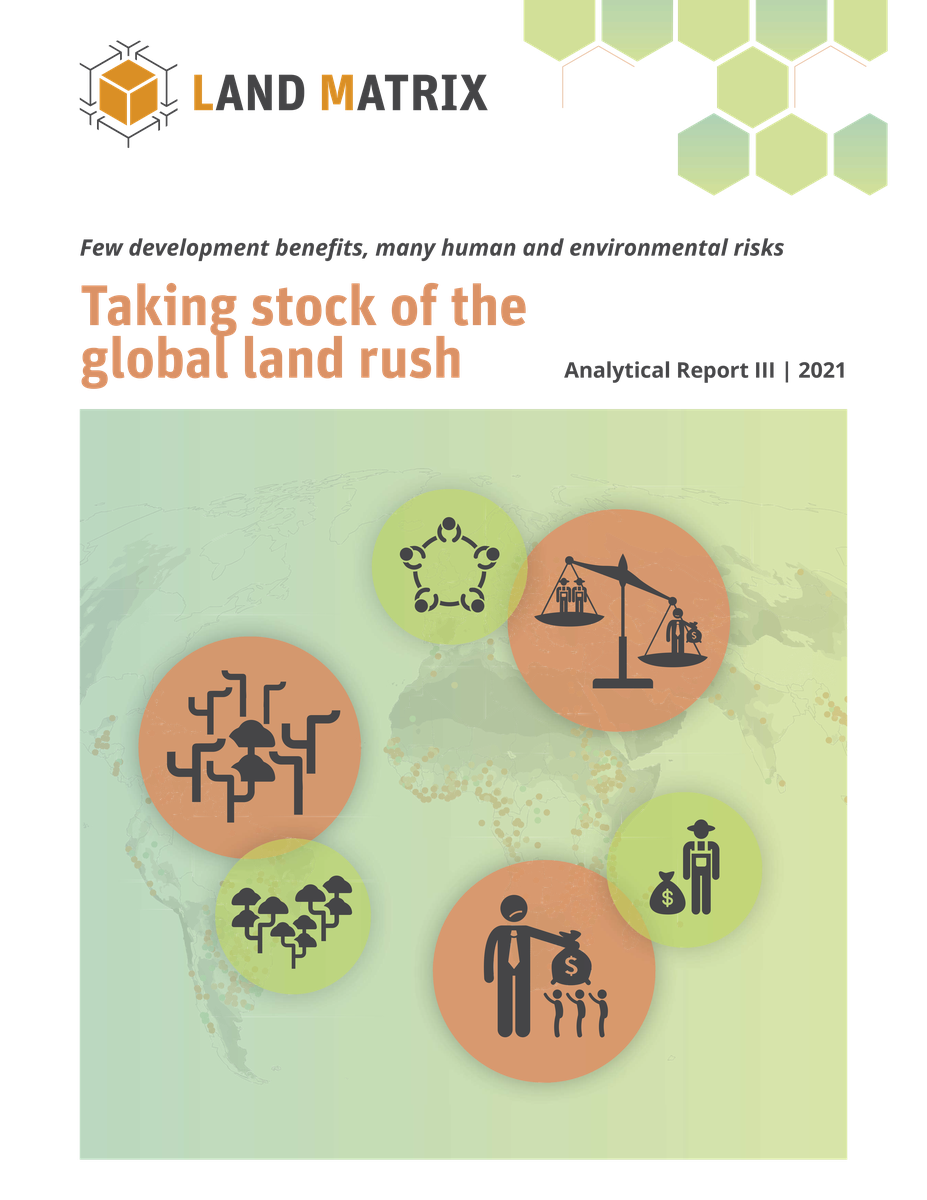Land Matrix Analytical Report III: Taking stock of the global land rush
More than 10 years since the surge in large-scale land acquisitions (LSLAs) in developing countries which followed the spike in agricultural commodity prices in the late 2000s, the Land Matrix Initiative has taken stock of the “global land rush” and its socio-economic and environmental impacts in this, our third analytical report, entitled Taking stock of the global land rush: Few development benefits, many human and environmental risks. Our findings are sobering, in part alarming. Compliance with the principles of responsible business conduct is rare, and scant consultation with the affected communities is common. The non-consensual and uncompensated loss of land often comes with only little socio-economic benefits – be they employment, positive productivity spillovers, or infrastructure. “Business as usual” continues to destroy rainforests, natural habitats, and biodiversity on the agricultural frontiers of the Amazon, Southeast Asia, and the Congo Basin. Although progress has been made with regard to land governance, a lack of policy implementation in this area is evident. This is particularly apparent from our assessment of the application of the Voluntary Guidelines on the Responsible Governance of Tenure (VGGTs) and the transparency of land acquisitions.
Overall, our report clearly shows the urgent need to rethink LSLAs and transform current practices into responsible and sustainable contributions to economic and social development. Specifically, to effectively ensure that land rights are protected, social development in target regions is enhanced, and the environment is respected, we see five priority areas for policy change: 1) Land governance reforms and their effective implementation, based on the VGGTs, should be pursued and fast-tracked by governments; 2) Local development should take centre stage, with a focus on spillovers to and the inclusion of smallholder farmers; 3) International investment treaties must integrate human rights and environmental provisions, and human rights due diligence should be mandatory; 4) LSLAs that lead to deforestation, the conversion of other valuable natural habitats, or damage important carbon stores such as peatlands need to be stopped; and 5) Binding commitments to increase transparency are needed, for all stakeholders.
PLEASE NOTE: The third Analytical Report only focuses on deals with agricultural intentions of investment and, as such, not all the deals in the database, which cover a wider range of possible intentions of investment, are included. The filter settings in the platform will thus not reproduce the same results as the Land Matrix Analytical Reports. The methodology used to aggregate data for this report is explained in detail on page 37.
A recording of the launch webinar is available here.
Read our blog summarising the report here: What have we learned over a decade on since the global land rush?
Watch this short clip for an introduction to the report.
